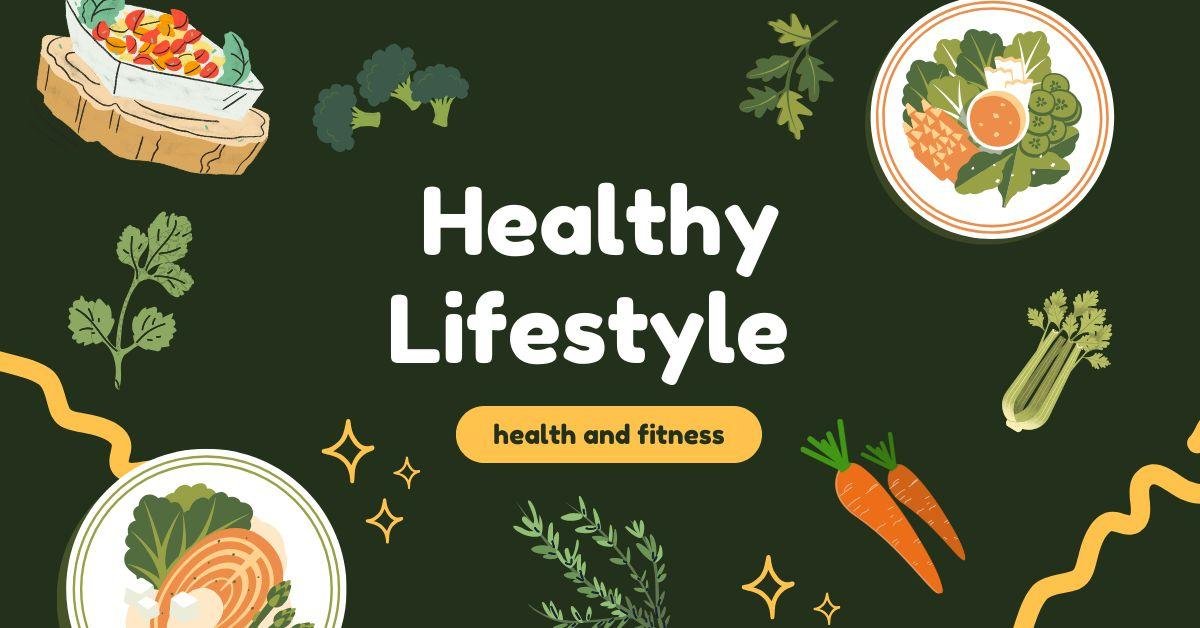Among the suggestions for keeping a healthy lifestyle are frequent exercise, eating a diet rich in nutrients, and cutting back on sugar and alcohol.
The most crucial thing you can do for yourself (and your loved ones) is to take care of your health.
There is more than one way to lead a healthy lifestyle, whether you make it a point to eat more fruits and veggies or go for a regular walk outside.
Try incorporating some or all of the 12 suggestions in this post to make health and well-being a priority in your life. Your physical and mental health can be significantly enhanced by implementing even a few of these suggestions.
Keep yourself at a healthy weight.
You can prevent high blood pressure, high cholesterol, heart disease, stroke, and type 2 diabetes by maintaining a healthy lifestyle.
However, what is a healthy range exactly?
According to the National Institute of Diabetes and Digestive and Kidney Diseases (NIDDK)Trusted Source, two metrics that can assist in determining whether you are at a healthy weight are your body mass index (BMI) and your waist circumference. When advising a healthy weight range for you, a doctor will also take into account other aspects, including your age, ethnicity, body composition, and medical history.
Consume nutritious foods.
For our bodies to function and provide us with energy, they require a diverse range of meals. According to the NIDDK Trusted Source, this entails consuming a well-balanced diet rich in vitamins, minerals, and fibre, which is present in fruits, vegetables (especially leafy greens), whole grains, legumes, nuts, lean protein, and low-fat dairy.
While occasional treats are acceptable, it is preferable if the majority of your regular meals and snacks include some of those essential elements.

Limit sugar and processed foods.
Eating primarily nutrient-dense foods is ideal. This entails cutting less on highly processed foods, such as packaged and frozen foods, which generally have more calories, fat, salt, and added sugars but fewer nutrients. Additionally, you should minimize your consumption of packaged cookies and chips, drinks, candies, and cereals with added sugar.
Try gradually replacing processed meals and snacks with whole foods if you are struggling to give up packaged snacks or fast food. Setbacks are a common occurrence while implementing significant adjustments because it is not a flawless science, a reliable source for your life.
Stay hydrated by drinking water.
Not only does staying hydrated help you stay hydrated, but it also keeps your body and mind functioning properly. In addition to helping you think better, drinking enough water may also:
enhance digestion
Boost your vitality
lessen discomfort in the joints
Strengthen the health of your heart
Although there are differing opinions on the recommended daily intake of water, 8 to 13 glasses is a reasonable goal.
Regularly work out
Among the many healthy lifestyle advantages of moving your body are:
improving your mood, increasing your energy, strengthening your muscles, and safeguarding your bones
Improving your sleep quality with weight loss or maintenance
Chronic diseases like heart disease, type 2 diabetes, and some types of cancer can also be avoided with regular exercise.
According to the Department of Health and Human Services, you should strive for 150–300 minutes of moderate-intensity aerobic exercise or 75 minutes of intense exercise each week.
You can tell when you are not feeling your best. You might feel “off.” Your digestive system may not be working as effectively as it should, you may feel exhausted, and you get colds more often than not. Mentally, you could experience anxiety or depression and find it difficult to focus.
The good news is that you can feel better by leading a healthy lifestyle. Better yet, you do not need to change your life in a single day completely. It is simple to make a few minor adjustments that will help you move toward better health. Additionally, the success of your first adjustment can inspire you to make more constructive ones in the future.
A ” healthy lifestyle “—what is it?
If you ask 50 people to define a “healthy lifestyle,” you will probably get 50 different definitions. This is due to the fact that there is no one right approach to being healthy. Said leading a healthy lifestyle entails doing things that provide you joy and satisfaction.
That could mean eating fast food once a week, exercising a mile five times a week, and spending every other day with loved ones in person or virtually. Another person may define a healthy lifestyle as never drinking alcohol, preparing for and competing in two marathons annually, and adhering to a ketogenic diet.
There is no superiority between these two. For that individual, both are ideal. What constitutes a healthy lifestyle is up to you.
What are the advantages?
Your body, mind, finances, and even the environment can all benefit from making improvements to your health.
1. Prevents illness
A number of diseases, including ones that may run in your family, can be prevented by adopting healthy practices.
For instance, a recent study found that over eight weeks, persons who consumed a typical American diet high in fruits and vegetables had a lower risk of cardiovascular disease.
According to a different 2020 study (Trusted Source), a 25 per cent lower risk of type 2 diabetes was linked to every 66 grams of fruit and vegetable consumption per day.
Disease risk is also decreased by substituting whole grains for some processed grains. Those who consumed whole grains had a 29 per cent lower rate of type 2 diabetes than those who consumed the least, according to an observational study by Trusted Source that included nearly 200,000 adults.
Moreover, a review According to 45 studies, consuming 90 grams (three 30-gram portions) of whole grains per day decreased the incidence of cancer by 15%, coronary heart disease by 19%, and cardiovascular disease by 22%.
Even 11 minutes a day of exercise can extend your life by several years. Researchers monitored almost 44,000 adults in a 2020 study.
2. Conserves funds
Getting a yearly physical from your primary care physician is always a good idea. This is particularly true given that certain medical disorders, like high blood pressure, are “silent.” Since they do not exhibit any symptoms, you typically are not aware that you have the illness unless you are examined.
However, you are less likely to need to visit a doctor if you are in better condition. Lowering co-pays, the need for prescription drugs, and other treatments could result in financial savings.
3. prolongs life
Living a longer life is linked to basic healthy habits. You may live up to 14 years longer at age 50 if you have never smoked, maintain a healthy weight, engage in regular physical activity, eat a balanced diet, and drink alcohol in moderation. You may live longer if you make even a handful of these adjustments.
4. It might benefit the environment.
Foods that use refined grains and additives to alter their texture, flavour, or colour are considered ultra-processed. Cheese puffs, boxed dessert cakes, chicken nuggets, and sweetened morning cereals are a few examples of these foods. Ultra-processed foods make up over 70% of the food found in supermarkets in the United States.
Ultra-processed food production increases greenhouse gas emissions, deforestation, plastic waste, biodiversity loss, and water scarcity.
Then there are items made from animals. A 2013 research by the Food and Agriculture Organization of the United Nations (a U.N. body dedicated to decreasing hunger and food inequality globally) found that 14.5 per cent of greenhouse gas emissions are caused by the production of animals for meat and dairy.
But there are simple solutions for this. For instance, the National Resources Defense Council estimates that if every American reduced their weekly beef intake by 1/4 pound, the reduction in greenhouse gas emissions would be equal to removing four to six million cars from the road.
However, it goes beyond just what you consume more or less of. Biking can also reduce the amount of carbon dioxide produced into the atmosphere by taking the place of brief car rides.
According to a 2010 study that was not peer-reviewed, if 20% of Madison, Wisconsin residents rode their bikes for shorter than five-mile excursions, the city’s carbon dioxide emissions would be reduced by more than 57,000 tons annually.
Additionally, according to a 2017 study conducted in Stockholm, if drivers who lived within a half-hour bike ride of their place of employment choose to commute by bicycle instead of car, the county might save 449 years of life each year owing to lower vehicle emissions.
Being mentally and emotionally fit is a prerequisite for a healthy lifestyle; physical fitness is not the only one. Your entire way of living should incorporate maintaining your health. Long-term illnesses and chronic diseases can be avoided by leading a healthy lifestyle. Your self-esteem and self-image depend on feeling good about yourself and maintaining your health. Do what is best for your body to maintain a healthy lifestyle.

No, you do not have to push yourself to work out hard in the gym, but you should stay as active as you can. You can continue with simple floor exercises, swimming, walking, or just doing some housework to keep yourself active. Follow your body’s instructions.
What matters is that you keep working out. Make time to work out three to five times a week for at least twenty to thirty minutes each day. Establish a regimen and make sure you get adequate exercise each day.






